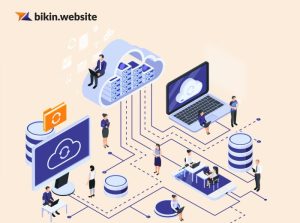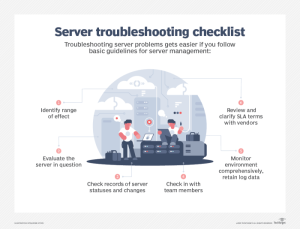
Step into the realm of web development where magic happens! Let’s dive into the best computer software that can turn your digital dreams into reality with ease and efficiency. Brace yourself for a journey through the top tools of the trade!
Are you ready to explore the exciting world of web development software and discover the key players that can take your projects to the next level?
Best computer software for web development
When it comes to web development, having the right software can make all the difference in creating a successful website. Here are the top 5 computer software widely used for web development along with their key features, pros, cons, and personal experiences.
1. Adobe Dreamweaver
- Key Features: WYSIWYG editor, code editor, built-in FTP client, customizable workspace.
- Pros: Easy to use for beginners, great for both design and coding, supports multiple programming languages.
- Cons: Expensive subscription model, can be resource-intensive.
2. Visual Studio Code
- Key Features: Lightweight, powerful code editor, IntelliSense, Git integration, extensions support.
- Pros: Free and open-source, highly customizable, great for JavaScript and Node.js development.
- Cons: Limited WYSIWYG capabilities, may require extensions for certain features.
3. Sublime Text
- Key Features: Speed and performance, multiple selections, powerful API, distraction-free mode.
- Pros: Fast and efficient, extensive plugin ecosystem, cross-platform compatibility.
- Cons: Not beginner-friendly, lacks built-in features compared to other IDEs.
4. Atom
- Key Features: Hackable text editor, smart autocompletion, built-in package manager, file system browser.
- Pros: Free and open-source, highly customizable, great for collaborative projects.
- Cons: Can be slow with large files, may require tweaking for optimal performance.
5. Brackets
- Key Features: Live preview, preprocessor support, inline editing, visual tools for design.
- Pros: Lightweight and fast, integrates well with Adobe Creative Cloud, open-source.
- Cons: Limited language support, may lack advanced features compared to other IDEs.
Mobile Computing
Mobile computing refers to the use of portable computing devices such as smartphones, tablets, and laptops to access information and services while on the go. In today’s technological landscape, mobile computing has become an integral part of our daily lives, enabling us to stay connected, productive, and informed no matter where we are.
Evolution of Mobile Computing
Mobile computing has evolved significantly over the years. From the early days of basic mobile phones with limited functionality, we have seen the rise of smartphones with advanced features such as internet connectivity, touchscreens, and app ecosystems. The introduction of tablets further expanded the capabilities of mobile devices, offering larger screens and enhanced multimedia experiences.
- Popular examples of mobile computing devices in the market include:
- Smartphones: Devices like the iPhone, Samsung Galaxy, and Google Pixel
- Tablets: Such as the iPad, Samsung Galaxy Tab, and Amazon Fire
- Laptops: Lightweight and portable laptops like the MacBook Air, Dell XPS, and Microsoft Surface
Influence on Web Development Practices
Mobile computing has had a profound impact on web development practices. With the increasing use of mobile devices to access the internet, web developers now need to ensure that websites are mobile-friendly and responsive. This means designing websites that can adapt to different screen sizes and resolutions, providing a seamless user experience across all devices. The use of mobile-first design principles has also become more prevalent, prioritizing the mobile user experience in website development.
Computer Security
In web development, computer security plays a crucial role in safeguarding sensitive information, preventing data breaches, and maintaining the integrity of websites. It is essential to prioritize security measures to protect both the website and its users from potential threats.
Importance of Computer Security in Web Development
Computer security is vital in web development to prevent unauthorized access, data breaches, malware attacks, and other cyber threats. By implementing robust security measures, web developers can ensure the confidentiality, integrity, and availability of the website and its data.
- Use strong and unique passwords for all accounts and regularly update them to prevent unauthorized access.
- Implement secure coding practices to minimize vulnerabilities and reduce the risk of cyber attacks.
- Regularly update software, plugins, and frameworks to patch known security vulnerabilities and protect against exploit attacks.
- Utilize HTTPS encryption to secure data transmission and protect sensitive information from interception.
- Conduct regular security audits and penetration testing to identify and address potential security issues proactively.
Common Security Threats Faced by Web Developers
Web developers often encounter various security threats that can compromise the integrity and confidentiality of websites. Some common security threats include:
- Cross-Site Scripting (XSS) attacks
- SQL Injection vulnerabilities
- Brute force attacks
- Phishing scams
- DDoS (Distributed Denial of Service) attacks
Enhancing Computer Security in Web Development
To enhance computer security while developing websites, web developers can follow these tips:
- Regularly update software, plugins, and frameworks to patch known vulnerabilities.
- Implement secure coding practices to prevent common security issues like XSS and SQL Injection.
- Utilize firewalls and intrusion detection systems to monitor and block suspicious network traffic.
- Encrypt sensitive data at rest and in transit to protect it from unauthorized access.
- Implement multi-factor authentication to add an extra layer of security for user accounts.
Role of Encryption in Ensuring Computer Security for Web Applications
Encryption plays a critical role in ensuring the security of web applications by protecting sensitive data from unauthorized access. By encrypting data at rest and in transit, web developers can safeguard confidential information and prevent data breaches. Encryption algorithms like AES and RSA are commonly used to secure data and communications in web applications, providing a secure environment for users to interact with the website.
Computers Software
In web development, different types of computer software play a crucial role in creating, testing, and deploying websites and web applications. These software tools are essential for developers to streamline the development process and ensure the quality of the final product.
Types of Computer Software Used in Web Development
- Text Editors: Used for writing and editing code, such as Sublime Text, Visual Studio Code, and Atom.
- Integrated Development Environments (IDEs): Provide a comprehensive set of tools for coding, debugging, and testing, like IntelliJ IDEA, Eclipse, and NetBeans.
- Version Control Software: Enables collaboration among developers, tracks changes to code, and helps manage codebase, such as Git, SVN, and Mercurial.
- Frontend Frameworks: Libraries and tools for frontend development, including React, Angular, and Vue.js.
- Backend Frameworks: Server-side technologies for building APIs and handling database operations, like Node.js, Django, and Ruby on Rails.
Importance of Version Control Software in Collaborative Web Development Projects
Version control software allows multiple developers to work on the same codebase simultaneously, keeping track of changes, resolving conflicts, and ensuring a smooth collaboration process.
Essential Software Tools for Frontend and Backend Development
- Frontend Tools: HTML, CSS, JavaScript, and libraries/frameworks like Bootstrap, jQuery, and Sass.
- Backend Tools: Server-side languages such as Python, Java, PHP, and databases like MySQL, MongoDB, and PostgreSQL.
Software Automation Tools for Streamlining Web Development Processes
Automation tools like Gulp, Grunt, and Webpack help automate repetitive tasks, optimize code, and improve the efficiency of web development workflows.
Computer Systems
Computer systems are the combination of hardware and software that work together to perform tasks and processes. In the context of web development, having an efficient computer system is crucial for designing, coding, and testing websites and web applications.
Operating Systems for Web Development
Different operating systems are commonly used for web development, each with its own set of features and benefits. Some popular operating systems for web development include:
- Windows: Widely used and known for its compatibility with various software tools and applications.
- macOS: Preferred by many developers for its user-friendly interface and seamless integration with other Apple products.
- Linux: Known for its stability, security, and flexibility, making it a popular choice among web developers.
Hardware Requirements for Web Development
Setting up an efficient web development system requires specific hardware components to ensure smooth performance and productivity. Some essential hardware requirements include:
- Fast processor: To handle complex tasks and run multiple applications simultaneously.
- Sufficient RAM: To enable smooth multitasking and quick access to data.
- High-resolution display: For better visual clarity and enhanced productivity.
- Storage space: To store large files, databases, and development tools.
Impact of Cloud Computing on Computer Systems
Cloud computing has revolutionized the way computer systems are used for web development by providing scalable and flexible resources over the internet. Some ways in which cloud computing has impacted computer systems for web development include:
- Increased collaboration: Developers can work on projects simultaneously from different locations using cloud-based tools and platforms.
- Cost-effective solutions: Cloud services offer pay-as-you-go pricing models, reducing the need for expensive hardware investments.
- Scalability and flexibility: Developers can easily scale up or down resources based on project requirements, ensuring optimal performance.
Computers Technology

In the fast-paced world of web development, staying up to date with the latest advancements in computer technology is crucial. From artificial intelligence to virtual reality, innovative technologies are reshaping the way websites are created and experienced.
Artificial Intelligence and Machine Learning
Artificial intelligence and machine learning have revolutionized web development processes by automating repetitive tasks, analyzing user behavior, and personalizing content. For example, AI-powered chatbots can enhance customer interactions on websites, while machine learning algorithms can optimize search engine rankings based on user preferences.
Virtual Reality and Augmented Reality
Virtual reality (VR) and augmented reality (AR) technologies are taking user experiences on websites to a whole new level. Incorporating VR and AR elements can create immersive environments, interactive product demonstrations, and engaging storytelling experiences. For instance, e-commerce websites can use AR to allow customers to visualize products in their own space before making a purchase.
Innovative Technologies Shaping the Future
In addition to AI, ML, VR, and AR, other cutting-edge technologies are shaping the future of web development. For example, progressive web apps (PWAs) offer a seamless user experience across devices, while voice search optimization is becoming increasingly important with the rise of smart assistants like Siri and Alexa. Furthermore, blockchain technology is being explored for secure transactions and data protection on websites.
Computers Gadgets

When it comes to web development, having the right gadgets can make a significant difference in productivity and efficiency. From dual monitors to ergonomic accessories, there are various tools available to help developers excel in their work.
Essential Gadgets for Web Developers
- A high-quality keyboard and mouse: Comfortable input devices can prevent strain and improve workflow.
- External storage devices: Backing up important files and projects is crucial for web developers.
- Noise-canceling headphones: Blocking out distractions can enhance focus during coding and testing.
- Portable power bank: Ensuring your devices stay charged, especially when working remotely or on-the-go.
Benefits of Dual Monitors
Dual monitors offer web developers the ability to display multiple applications simultaneously, increasing productivity by allowing for easier multitasking. With one screen dedicated to coding and the other for reference materials or testing, developers can work more efficiently without constantly switching between tabs or windows.
Ergonomic Gadgets for Developers
- Adjustable standing desk: Promotes better posture and reduces the risk of musculoskeletal issues associated with prolonged sitting.
- Ergonomic chair: Provides proper support for the back and neck, minimizing discomfort during long hours of development work.
- Wrist rest and keyboard tray: Helps maintain a neutral wrist position and prevents strain from repetitive typing tasks.
Gadgets for Coding and Testing Phases
- Wireless debugging tools: Facilitate the process of identifying and fixing bugs in code without being tethered to a specific location.
- Color-calibrated monitor: Ensures accurate color representation, crucial for web design and development work.
- Responsive design testing tools: Allow developers to preview how websites will appear on various devices, aiding in optimization for different screen sizes.
Final Wrap-Up
As we wrap up our exploration of the best computer software for web development, remember that the right tools can make all the difference in creating stunning websites. Choose wisely and let your creativity soar in the digital universe!
Essential Questionnaire
Which software is best for frontend development?
One of the top choices for frontend development is Adobe Dreamweaver, known for its user-friendly interface and robust features.
Is there software specifically for backend development?
A popular choice for backend development is Microsoft Visual Studio, offering powerful tools for building robust backend systems.
Can I use multiple software tools for web development?
Absolutely! Many developers use a combination of tools like Sublime Text, GitHub, and Apache for a comprehensive web development experience.
Are these software options suitable for beginners?
While some may have steeper learning curves, there are beginner-friendly tutorials available for most software to help you get started on your web development journey.





